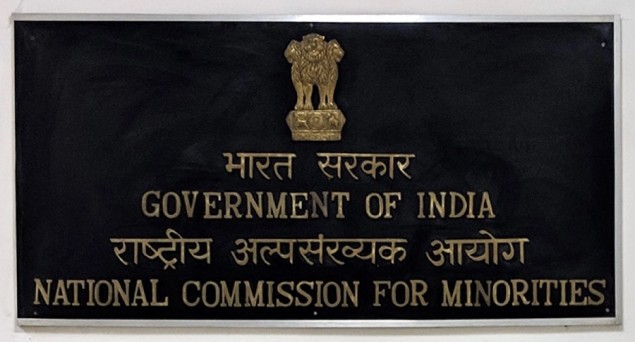India Tomorrow
NEW DELHI, JANUARY 21— While the Supreme Court of India on Monday issued a notice to the Centre on a plea challenging the constitutional validity of the National Commission for Minorities Act 1972, the Allahabd High Court recently declined requests from two mosques to install loudspeakers for Azan.
The petitioners also said that the establishment of National Commission for Minorities (NCM) is a “fraud on the constitution” which was committed by the Central Government to “appease a section of society at the cost of national integration.”
According to LiveLaw.in, the petition has been filed by one Neeraj Shanker Saxena and five others, who are stated to be the followers of “Sanatan Vedic Dharm.”
A Supreme Court bench comprising Justices R F Nariman and Ravidra Bhat heard the matter.
Attorney General K K Venugopal submitted before the bench that the matter may require consideration by a constitution bench as the petition raised questions on the constitutional scheme for the protection of minorities.
The matter will be considered by a three judge bench after four weeks, to examine if it requires to be referred to a larger bench.
Besides the NCM Act and NCM, the petitioners have also challenged various financial benefits and educational grants given to minorities.
Despite the fact that NCM Act covers five religious minorities, the petitioners have singled out only Muslims saying that the Central Government is treating the community above law and undue advantage was being given to Waqf properties by neglecting Hindu religious establishments.
“The Central Government is treating Muslim community above law and the Constitution and an undue advantage is being given to them ignoring the provisions contained in Article 14,15 and 27 of the Constitution of India. The Hindu trust, mutts and other institutions are being placed at lower pedestal violating the equality clause enshrined in the preamble of the Constitution and the Constitutional injunction embodied in Article 14,15 and 27 of the Constitution of India”, states the petition drawn and filed by Advocate Vishnu Shankar Jain.
The Union Government set up the National Commission for Minorities (NCM) under the National Commission for Minorities Act, 1992. Five religious communities — Muslims, Christians, Sikhs, Buddhists and Zoroastrians (Parsis) were notified as minority communities. Through a notification dated January 27, 2014, Jains were also notified as minority community.
Allahabad High Court Declines Mosques’ Request to Install Loudspeaker for Azan
The Allahabad High Court on January 9 declined the permission sought by two mosques to install loudspeakers for the purposes of Azan, saying no religion prescribes the use of loudspeakers for worshipping.
“No religion prescribes or preaches that prayers are required to be performed through voice amplifiers or by beating of drums and if there is such practice, it should not adversely affect the rights of the others including that of not being disturbed,” division bench of Justice Pankaj Mithal and Justice Vipin Chandra Dixit held.
The bench relied on Church of God (Full Gospel) in India v. KKR Majestic Colony Welfare Association & Ors., 2000 (7) SCC 282 case, whereby the Supreme Court had held that the rights under Articles 25 and 26 of the Constitution are subject to public order, morality and health.
The petitioners argued that using loudspeaker is an essential part of their religious practice and it has become necessary with the increasing population to give call to the people on amplifiers and loudspeakers to come and pray.
Declining that argument, the HC bench said: “It is true that one can practice, profess and propagate religion as guaranteed under Article 25 (1) of the Constitution of India but the said right is not an absolute right. The right under Article 25 is a subject to the wider Article 19 (1) (a) of the Constitution and thus both of them have to be read together and construed harmoniously.”
The case is related to two mosques in Jaunpur of Uttar Pradesh. In the past, the management of the mosques were allowed to use loudspeakers but at some point of time later, the local police denied them permission and so them moved the court.
Full Story on LiveLaw.in





